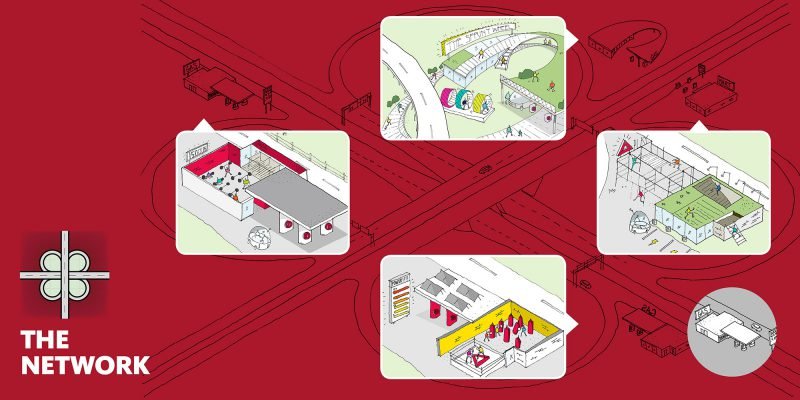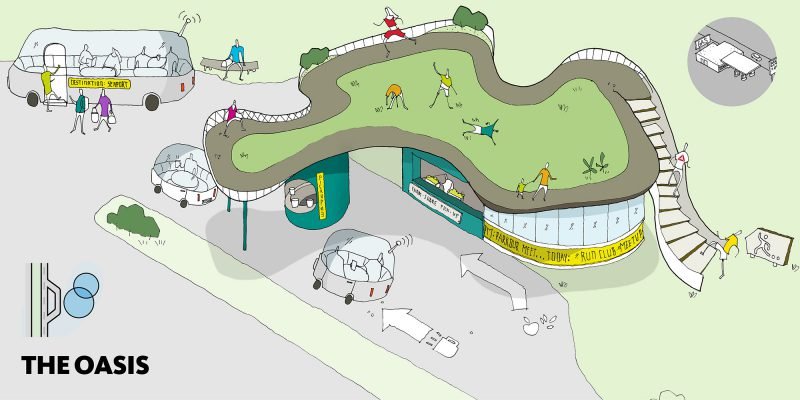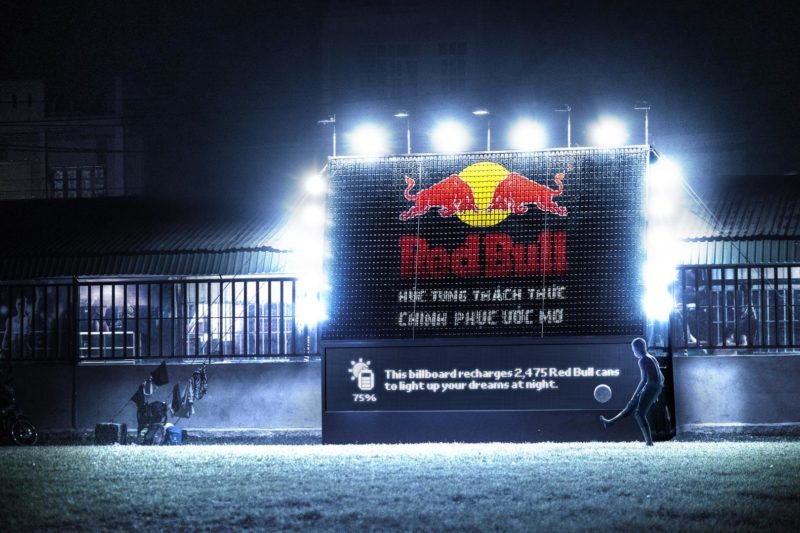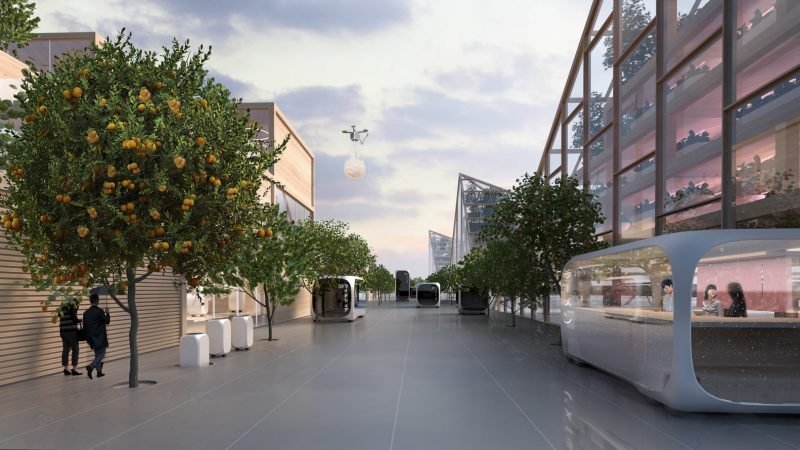Reebok Reimagines Gas Stations as Fitness Hubs
With a predicted one in six cars sold being electric by 2025, the prevalence of electric vehicles is to grow substantially in the coming years. What to do with all those fuel gas stations that will likely become obsolete when demand for petrol declines? Reebok and Gensler have presented their view on this development in their Get Pumped campaign.
The campaign entails a series of ideas for transforming gas stations into fitness hubs and wellness centers. Due to their often highly convenient locations, gas stations are thought to be the perfect spot for making health and wellness more easily accessible to all: “What do you do with all those perfectly-placed fuel stations in every community? Turn them into fuel for our bodies instead.” Reebok and Gensler provide three location scenarios that show how different types of gas station sites could be adjusted so that they eventually become “places of community”.

According to Austin Malleolo, head of Reebok fitness facilities, the aim of this extraordinary plan to refurbish some of the most traditional components of the world’s urban landscapes is to create a future “where there is a zero barrier to entry for an opportunity to work out and be healthy.” Alfred Byun, designer at Gensler, adds to this that the project means to generate urban networks of “fitness oases” that people can frequent swiftly between their home and work.

Should this initiative indeed be realized, Reebok and Gensler may be able to raise citizens’ awareness when it comes to their personal health and wellness, potentially persuading them to work out and eat healthily more often. Voices saying this a bad thing will arguably be hard to find.

Yet, Reebok’s involvement in a project like this that significantly intends to transform urban spaces is something that might trigger the attention of more critical voices. Because why does a sports brand like Reebok want to attach its name to refurbished gas stations? Is it solely for the sake of creating healthier communities, or are marketing incentives actually stronger for the company? Seen in light of our earlier blogs on companies getting involved in delivering urban services and amenities in London, Charleroi, and Ghent, the Get Pumped campaign might as well be seen as a next example of brand urbanism.



